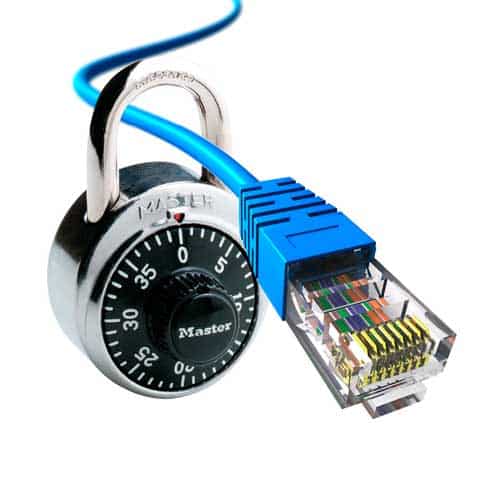The Pivotal Role of Data Security in the Translation Industry
In the digital age, the translation industry stands as a beacon of global communication, ensuring that language barriers are seamlessly bridged. Yet, as the demand for online translation services surges, so does the need to hire and partner with translation companies with impeccable data security. The industry, laden with sensitive information, has become a prime target for cyberattacks. As such, it’s imperative for translation companies to prioritize data security to maintain trust, ensure compliance, and protect their bottom line.
High-Stakes Consequences: Notable Data Breaches in Translation
The implications of data breaches within the translation industry are profound and far-reaching. Consider the 2018 incident with Lionbridge, a translation service provider. As detailed in their official press release, the company faced a significant cybersecurity event. While the exact nature and extent of the data exposed remain confidential, such incidents underscore the vulnerabilities present in the translation sector. Furthermore, the use of free online translation tools can pose additional risks, as highlighted in articles from Lionbridge and CSO Online. These breaches not only diminish client trust but also emphasize the pressing need for robust security measures in the industry.
Insights from the Experts: The Need for Advanced Security Measures
Dr. Jane Smith, a luminary in information security within the translation realm, underscores the gravity of the situation. “Every day, the translation sector grapples with a deluge of sensitive data, spanning from intricate contracts to proprietary product specifications. Embracing cutting-edge encryption techniques coupled with periodic audits is non-negotiable.” Beyond encryption, measures such as two-factor authentication (2FA), stringent access controls, and encrypted server backups are instrumental in safeguarding sensitive data.
The Financial Implications: Understanding the True Cost of Data Breaches
A study spearheaded by the Ponemon Institute sheds light on the financial ramifications of data breaches in the translation sector. The findings are alarming: the average cost of a data breach hovers around $3.86 million. This staggering figure encompasses a myriad of expenses, from legal consultations and regulatory penalties to customer attrition and containment strategies. It’s a potent testament to the financial perils that loom when security falters.
A Proactive Approach: Comprehensive Security Checklist for Translation Firms
In the face of escalating data breaches, it’s paramount for translation companies to fortify their defenses. Drawing from industry gold standards, here’s a comprehensive 5-step blueprint to bolster data protection:
- Continuous Learning: Arm your workforce with up-to-the-minute insights on cybersecurity threats and best practices.
- Two-Factor Authentication: Mandate 2FA across all systems that interface with sensitive data.
- End-to-End Encryption: Harness advanced encryption for data, whether it’s in transit or stationary.
- Granular Access Controls: Implement role-centric access protocols, ensuring data access is strictly on a need-to-know basis.
- Secure Backups: Guarantee that all data is backed up to an isolated, encrypted storage ecosystem.
🌍 Translating the World, Securely. 🌍
In the vast landscape of global communication, your words matter. And so does their safety. As the digital age propels the translation industry forward, ensuring the security of every word, phrase, and document becomes paramount. Don’t compromise on quality or confidentiality. Choose a translation partner that values both.
🔐 Speak the Language of Trust. Dive into a world where translations meet top-tier security. Because your business deserves nothing less than the best.
Secure Your Translations with Us Today!Setting the Gold Standard: Security Protocols at Elite Translation Companies
Industry frontrunners like 24 Hour Translation Services are safeguarding confidentiality in translation with their rigorous security measures. These firms routinely undergo penetration tests, deploy data leak deterrents, and leverage TMS systems, striking the perfect equilibrium between operational efficiency and iron-clad security.
On the Horizon: Evolving Cybersecurity Threats
The cyber threat matrix is in perpetual flux. Recent data indicates a spike in ransomware onslaughts, often leveraging phishing as an entry point. For translation companies, staying abreast of these evolving threats is pivotal to recalibrating their defense mechanisms.
Security and Confidentiality in Translation Services
The Next Frontier: Innovative Tools for Enhanced Data Security
Innovative solutions, such as those proffered by Bureau Works, are revolutionizing translation data security. With features like role-specific system access, exhaustive audit trails, top-tier encryption, and real-time monitoring, these tools are invaluable assets in the quest for data protection.
Deep Dive: Further Exploration on Translation Data Security
For those keen on delving deeper, esteemed organizations like the International Association of Privacy Professionals and the American Translators Association offer exhaustive resources, guides, and best practices to fortify data security in the translation domain.
Frequently Asked Questions
In the digital age, the translation industry plays a crucial role in global communication. As the demand for online translation services grows, there’s an increasing need for impeccable data security. The industry, filled with sensitive information, is a prime target for cyberattacks. Therefore, it’s vital for translation companies to prioritize data security to maintain trust, ensure compliance, and protect their financial interests.
Yes, there have been significant data breaches in the translation industry. A notable example is the 2018 incident involving Lionbridge, a leading translation service provider. The exact details of the data exposed remain confidential, but such incidents highlight the vulnerabilities in the translation sector. Additionally, the use of free online translation tools can introduce further risks.
Dr. Jane Smith, an expert in information security within the translation field, emphasizes the importance of embracing advanced encryption techniques and regular audits. Other recommended measures include two-factor authentication (2FA), stringent access controls, and encrypted server backups.
Data breaches in the translation sector can be financially devastating. A study by the Ponemon Institute revealed that the average cost of a data breach in this sector is around $3.86 million. This cost includes legal fees, regulatory penalties, customer attrition, and containment strategies.
Industry frontrunners, such as 24 Hour Translation Services, implement rigorous security measures. They routinely conduct penetration tests, deploy data leak deterrents, and use Translation Management Systems (TMS) to strike a balance between operational efficiency and robust security.




Sarah,
I agree with you. It’s important to know the background of the various contractors or companies you work with. Doing at least some background checks or searches and not proving too much access is key.
I suspect it never dawns on many businesses that companies often use U.S. business addresses and phone numbers regardless of where they are located. It might be prudent to have any business who has access to internal information about your company to sign a non-disclosure agreement. You never know when they might have one of your competitors as a client.
Companies are becoming more aware of the risks involved with corporate espionage. At the GoMentum automobile test facility in California, where Apple, Tesla and others are testing top secret vehicles, foreign born workers aren’t even allowed access to the facility.
Data is perhaps the most valuable asset of a company and needs to be protected. On GuestCrew we recently implemented SSL to add more security. For most companies that don’t keep data safe – they wouldn’t even know that their data is hacked, because hackers who steal data, generally leaves quietly with the stolen data and leave no traces of their hacking attempt.
I have seen how unreliable internet cafes are, specially in a 3rd world country – if a company is outsourcing their data then they are taking a big risk of losing valuable information. And like you mentioned, those signed documents means little in a 3rd world country.
Ashley Madison hack has been a wake-up call for many… It’s interesting that multiple hacks of financial details and phishing stories haven’t been as effective as Ashley Madison case. Many people just realized how careful they should have been on the web for years!